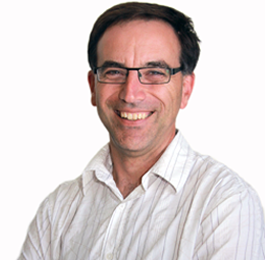Enter the CO-ADD Chemistry Prize on Thinkable
This week is World Antibiotic Awareness Week and we are happy to announce the launch of the CO-ADD Thinkable Chemistry Prize.
The CO-ADD Chemistry Prize is an online competition open to all academic researchers and students worldwide, who can submit an abstract and an optional video on how chemistry can fight the war on superbugs and help find the next antibiotic.
Four prizes will be awarded based on the diversity of compounds chemists can produce. We offer a prize pool of US$5,500 to go towards sample preparation costs. The entries will be judged by an international panel of chemists and microbiologists, and we also have a people's choice category.
Closing date for applications: January 15, 2016.
Judging panel:
|
Dr Mark BLASKOVICH – The University of Queensland (Australia) Dr. Mark Blaskovich is a senior research officer at The University of Queensland’s Institute for Molecular Bioscience with extensive medicinal chemistry expertise and over 15 years of industrial drug development experience. As Chief Operating Officer at Mimetica (Australia), he managed the drug discovery and development program for melanocortin-5 receptor antagonists leading to a compound currently in Phase II human trials. In his role at CEPTYR (Seattle) he led a multidisciplinary team that developed a preclinical candidate for protein tyrosine phosphatase 1B, while at Molecumetics (Seattle) he headed a $2m/yr industrial collaboration on peptidomimetic compounds targeting proteases and GPCRs. Since 2015, Mark is a program coordinator for hit validation and chemistry for The Community for Open Antimicrobial Drug Discovery (CO-ADD). He has published over thirty articles and patents, and is sole author of 'The Handbook on Syntheses of Amino Acids'. |
 |
|
Dr Siouxsie WILES – The University of Auckland (New Zealand) Dr Siouxsie Wiles describes herself as a microbiologist and bioluminescence enthusiast. Head of the Bioluminescent Superbugs Lab at the University of Auckland, Siouxsie combines her twin passions to understand infectious diseases. In a nutshell, Siouxsie and her team make nasty bacteria glow in the dark. Siouxsie is also interested in demystifying science for the general public, and raising awareness of the growing threat of antibiotic-resistant superbugs. She is a blogger and podcaster, as well as being a regular science commentator for Radio NZ’s Nine to Noon programme. Siouxsie has also teamed up with Australian graphic artist Luke Harris, to make short animations describing nature’s amazing glowing creatures and the many uses of bioluminescence in science. Dr Siouxsie Wiles studied medical microbiology at the University of Edinburgh, followed by a PhD in microbiology at the Oxford Centre for Ecology and Hydrology. She then moved to Imperial College London where her research won her the inaugural National Centre for the Replacement, Refinement and Reduction of Animals in Research (NC3Rs) 3Rs prize. In 2009, Siouxsie was awarded a Sir Charles Hercus Fellowship from the Health Research Council of New Zealand and relocated to the University of Auckland. |
|
|
Prof Mark MOLONEY – University of Oxford (United Kingdom) Prof Moloney was appointed as a University lecturer and Tutorial Fellow in Organic Chemistry at Oxford University and St Peter’s College in 1990, where he is currently EP Abraham Fellow and Professor of Chemistry. Having begun his career working in synthetic methodology using main group metal-mediated reactions and the synthesis of functionalised, saturated enantiopure nitrogen heterocycles, more recently his research interests have come to include the development of new generations of antibacterials, inspired by tetramate-containing natural products which are themselves antibacterial. This work has clearly shown the potential of such structures for the identification of highly novel bioactive systems and in particular of wholly new classes of antibacterial agents with promising bactericidal activity. Another area of focus has involved the application of reactive carbene chemistry for the surface functionalisation of synthetic and natural polymers; this novel approach has allowed the modification of a wide range of polymers including polyalkanes, polyesters, polyamides with surface colour, hydrophilicity, photochromic, metal chelating, protein and cell adhesion, biocidal and drug delivery activities, which is achieved without compromise of bulk material properties. Commercialisation of chemistry arising from this research by means of a spin-out company has led to innovation in adhesive technologies relevant to the automotive, marine and aeronautical sectors. A current area of interest is the preparation of drug delivery devices, and particularly of antibacterial materials. This has resulted in the publication of nearly 180 papers in the primary, monograph, patent and review literature, and numerous national and international lectures and posters at academic, industrial and conference locations. Mark retains a strong interest in chemical education, and has published 4 textbooks, one of which has been translated into multiple languages. |
 |
|
A/Prof Mei Lin GO – National University of Singapore (Singapore) My research interests are in the area of designing and synthesizing novel compounds with the aim of establishing structure-property correlations and understanding modes of action by biochemical and pharmacological approaches. Department of Pharmacy, Faculty of Science. |
|


